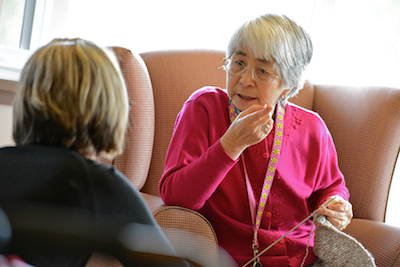
Community care software vendor Civica Care has won a five-year contract to roll out its Carelink cloud-hosted community care suite for in-home care provider Simply Helping, with the implementation expected to begin early next year.
Simply Helping's 1000+ support workers will have access to CarelinkGo, a mobile application enabling time and attendance reporting out in the field, and the CarelinkAir module, which will enable administration staff to access information and forms from any web-enabled device.

The Australian Digital Health Agency (ADHA) says it is making “significant progress” towards the main priorities of the national digital health strategy, particularly the roll out of the My Health Record to 90 per cent of Australians, and is now looking ahead to other priorities such as its draft roadmap for digital health interoperability and standards-based secure messaging.
In its annual report for 2018-19, tabled today, ADHA chair Elizabeth Deveney says My Health Record is now a fundamental feature of Australia’s health infrastructure, although she admits the expansion of the system “has been accompanied by far more controversy than anticipated”.

Mt Gambier Hospital in regional South Australia has gone live with Allscripts' Sunrise electronic medical record and patient administration system, joining Noarlunga, the Queen Elizabeth Hospital, Port Augusta and the Repatriation General Hospital in using the system.
The go-live at 78-bed Mt Gambier follows an upgrade of Sunrise from version 14.3 to the current 17.3 version earlier this year.

Doctors can now electronically refer their patients to My Aged Care directly from their practice management systems following a three-month trial using HealthLink's SmartForms technology.
The capability is live in recent versions of MedicalDirector, Best Practice and Genie. A Department of Health spokesperson said the department will be monitoring take-up and feedback in the next six to 12 months to potentially roll it out to other channels.
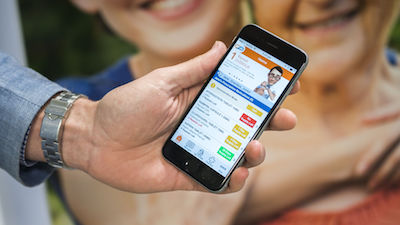
Medications adherence solution developer MedAdvisor has teamed up with transport and logistics provider Kings Transport to enable pharmacies to offer medication delivery to their patients.
Set to roll out next year, the functionality will allow patients to order and pay directly via the MedAdvisor app, while pharmacies will access the delivery service through MedAdvisor's PlusOne platform. MedAdvisor will receive a share of the delivery fee.

Pulse+IT's weekly round-up of international health IT news for the week ending November 3: EMRs and clinician burnout, Walmart Health, Google offers to buy Fitbit, voice assistants for health, NHS AI moves, Humber River command centre, medical scribes, Cerner partners with Uber, Microtest loses NHS Wales GP contract, docs want EMR vendors to do better, hospitals access opiate data
Report: Health IT improvements needed to reduce clinician burnout
Health Data Management ~ Greg Slabodkin ~ 24/10/2019
With clinician burnout at epidemic levels, the U.S. healthcare system must make health information technology easier to use in an increasingly stressful work environment.
An inside look at Walmart’s new health clinic
FierceHealthcare ~ Paige Minemyer ~ 29/10/2019
Walmart Health launched its first clinic earlier this fall in Dallas, Georgia, and the facility—which is attached to a retail store but offers its own entrance—provides patients with primary care, dental care, vision care and psychiatric counseling, alongside health education and wellness programs.
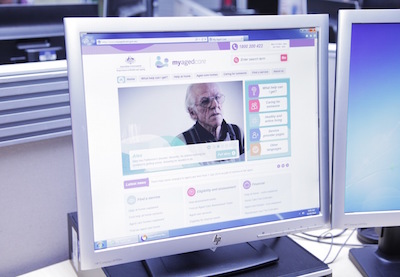
The one-word title of the interim report of the Royal Commission into Aged Care Quality and Safety is stark: Neglect. The report is a sobering read for those working in and around the aged care system and details much higher levels of poorly managed continence, malnutrition, overprescribing of psychotropic drugs and actual physical abuse than previously thought. Dental health is bad, wound care is worse, nutrition is abominable.
The report details a litany of problems with the sector, especially workforce problems, but unfortunately a lot of them start when older people and their families first begin to investigate their options for care. Their entry point is My Aged Care, a system that was recommendation of the Productivity Commission's Caring for older Australians inquiry in 2011. The My Aged Care website went live six years ago and the contact centre and client record about four years ago, but according to the commissioners, it is not delivering the vision the Productivity Commission outlined of seamlessly allowing people to navigate the system, and does not seem to be delivering much at all.

WA pathology provider PathWest is now uploading pathology reports to the My Health Record from its community collection centres as well as the state's hospitals.
Australian Clinical Labs' (ACL) laboratory at Bendigo Health is also uploading reports, joining Sonic Healthcare as one of the major private providers that are now uploading reports routinely.

Clinical communication and task management platform Medtasker has partnered with Telstra Health to offer its mobile task management app as an integrated module of Telstra Health's Patient Flow Manager software.
Medtasker has also gone live as a standalone application at Whanganui District Health Board in New Zealand, joining Melbourne's Northern Health, Brisbane's Redland Hospital and Gold Coast University Hospital in using the tool.

Victoria's Goulburn Valley Health has rolled out a cloud-based chemotherapy software solution from EpiSoft at its Peter Copulos Cancer & Wellness Centre, thought to be Australia's first public hospital to implement a cloud-first solution.
EpiSoft’s chemotherapy prescribing and management software won a competitive tender issued by GV Health, representing the first public hospital site for the Sydney-based eHealth company.
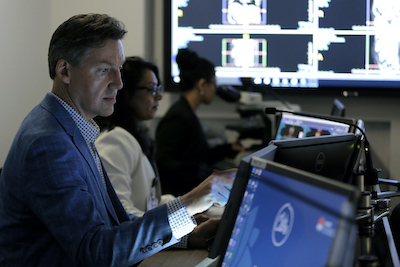
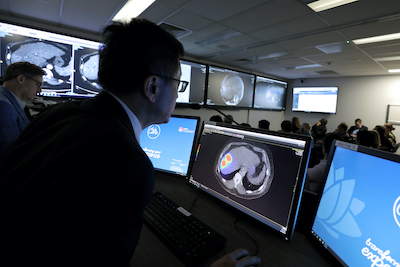
South Western Sydney Local Health District has outfitted telehealth-enabled meeting rooms at Liverpool, Campbelltown and Bankstown-Lidcombe hospitals that allow multidisciplinary teams to access digital imaging systems and electronic medical records in real time.
The rooms are also outfitted with video conferencing systems so clinicians can dial in from anywhere in the hospital or anywhere in the world, along with multiple touch LCD screens and ceiling-mounted cameras.

Western Australia-headquartered ISA Healthcare Solutions is set to release a new version of its MMEx web-based community care solution next month, featuring a new dose-driven prescribing feature for its medication management system.
MMEx is used by a number of Aboriginal medical services and NGOs in rural and remote settings and features a full EMR, a practice management module, built-in secure messaging and care planning.
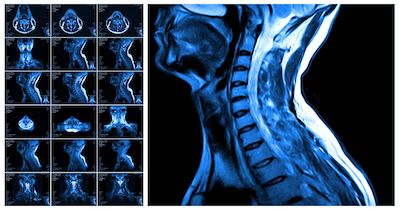
Australian radiology software specialist Zed is providing the image sharing platform for injured players at the Rugby World Cup in Japan, allowing the 16 team doctors to securely share images with radiologists and sports medicine specialists as well the players' regular doctors back home.
Zed has so far hosted more than 50 MRI scans of injured players that have been uploaded and shared, co-founder and CEO Ross Wright said.

Four websites out of 600 scanned by New Zealand's National Cyber Security Centre (NCSC) following the breach of Wellington primary health organisation Tū Ora Compass Health's site in August have been found to have the same vulnerabilities, the Ministry of Health said.
The four sites belong to three district health boards and have since been patched, with a fifth site found to be a false positive, with the vulnerability having been previously secured.

The Australian Digital Health Agency (ADHA) has extended Accenture's contract as the national infrastructure operator for the My Health Record platform until the end of the 2021 financial year.
ADHA CIO Ronan O'Connor told an industry briefing in Sydney recently that there was the option for the contract to be extended further as the agency conducts its national infrastructure modernisation program, a request for information (RFI) for which was released in September.

More than half of the users of Best Practice Software's Bp Premier practice management system are now using the HealthShare referrals directory on a monthly basis, the vendors report.
HealthShare's directory allows GPs to search for specialists who participate in 'No Gap' and 'Known Gap' arrangements with 30 private health insurers.

SA Health has issued a tender for a secure message delivery (SMD) system to digitise the exchange of clinical documents such as discharge summaries and eReferrals between the state's hospitals and community healthcare providers, and to replace SA Pathology's results messaging engine, which is at the end of its life.
The tender calls for an interoperable architecture using the FHIR-based interoperability standards developed by the industry and the Australian Digital Health Agency (ADHA), which allow messages to be sent and received irrespective of messaging vendor.

Pulse+IT's weekly round-up of international health IT news for the week ending October 27: Amazon builds Care family, Amazon and telehealth, autonomous robots for dementia care, ONC partners with IHE, Saskatchewan patient portal, England's electronic prescription service finalises roll-out, all-digital clinical trial with Apple, NHS GP IT Futures, Google's first chief health officer, Philippines legislates for eHealth system
Amazon acquires start-up Health Navigator
CNBC ~ Christina Farr ~ 23/10/2019
Health Navigator will join the company’s Amazon Care group, which launched in September. Amazon Care is designed to serve as a medical benefit for employees and helps provide care virtually, through a video visit.

We received word at the start of this week that GP software vendor MedicalDirector was about to enter the UK market with its Helix product, having been chosen to be part of the NHS's new GP IT Futures program. MedicalDirector is on a panel with six other PMS vendors, including the four incumbents, and Helix is the only cloud-based product among them.
It's big news for MedicalDirector, which has struggled to sell Helix since its launch in 2017. Helix was expected to be rolled out to all 73 medical centres in former owner Primary Health Care's network but that plan has stalled and Primary, now called Healius, has rolled out MedicalDirector Clinical, the on-premise package that most people still refer to as MedicalDirector 3, in its stead.
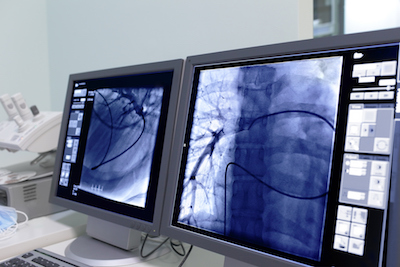
Canon Medical Systems ANZ has won a $47.2 million contract to roll out a new medical imaging system for WA Health, replacing the state's old Agfa radiology information (RIS) and picture archiving and communication (PACS) systems.
Canon Medical, which took over the assets of Toshiba Medical in 2016, has a full portfolio of software for diagnostic imaging, including its Vitrea enterprise imaging range. It also manufactures diagnostic equipment such as X-ray machines, CT scanners, MRI machines, ultrasounds and nuclear medicine systems.
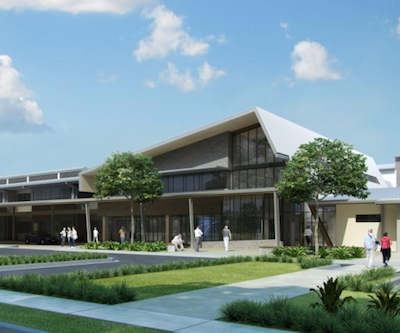
Health system consultancy HealthConsult has become the first firm working solely in Australia to be able to offer assistance to hospitals and health services to achieve accreditation under the HIMSS Analytics maturity models.
The HIMSS maturity models, including the inpatient electronic medical record adoption model (EMRAM), were built to assist hospitals and health services to efficiently and effectively adopt and get the most out of their technology investments.

Services Australia, formerly known as the federal Department of Human Services, has issued a request for tender to new suppliers for its Medicare Easyclaim services, which handles bulk billing and patient claims for 50,000 GPs, allied health providers and dentists.
There are currently five financial institutions that deliver Medicare Easyclaim, which is processed through point of sale devices such as EFTPOS terminals, including ANZ, the Commonwealth Bank, NAB, Suncorp and Tyro Payments.

eHealth NSW has issued a request for information from industry for the proposed NSW single digital patient record (SDPR), which would provide a statewide view of a patient's healthcare information in NSW public hospitals.
Following an industry briefing in August, eHealth NSW has developed a vision for the SDPR and outlined its scope, which would include the majority of functions provided by the existing electronic medical records (EMR), the different patient administration systems (PAS), the pathology laboratory information systems (LIMS) and some best of breed products supporting clinical specialties.

West Coast District Health Board is on the market for a community care technology platform covering primary care and ambulatory care, and also supports home-based support workers in New Zealand's least populous but one of its largest DHBs in area.
It is looking for an off-the-shelf system with minimal work to implement and integrate, but it must be able to interface with multiple legacy systems as well as the South Island's shared digital systems, including Health Connect South, electronic referral management (ERMS), patient administration (SI PICS) and aged care (InterRAI) systems.

Dragon Medical developer Nuance Communications has joined forces with Microsoft to bring the concept of ambient clinical intelligence (ACI) to the medical sector, planning to introduce an initial product early next year for specialist doctors.
ACI promises to allow easier clinical documentation and a reduction in doctor burnout by using speech recognition and natural language processing to auto-populate patients' medical records during consultations.

The two far north Queensland hospital and health services are understood to be in discussions with Telstra Health about potentially rolling out its Communicare community care platform for the $35 million Regional eHealth Project (ReHP).
Project lead agency Cairns and Hinterland Hospital and Health Service (CHHHS) confirmed last week that it would not go ahead with the planned implementation of ISA Healthcare Solutions' MMEx for the project and was instead talking to an alternative vendor.

Royal Australian College of General Practitioners (RACGP) CEO Zena Burgess has resigned after 11 years in the role.
The college board announced on Friday that chief operating officer Nick Williamson would act as CEO while a national search is undertaken for a new chief executive.

Clinical and practice management software vendor MedicalDirector has been selected by the UK National Health Service's technology arm NHS Digital as a member of a panel of vendors supplying IT systems and services to general practitioners in England.
NHS Digital is phasing out the GP System of Choice (GPSoC) framework introduced in 2006 that consisted of four approved GP software vendors, including market leaders TPP SystmOne and EMIS Web, with a new £450 million program called GP IT Futures.

Pulse+IT's weekly round-up of international health IT news for the week ending October 20: Germany's plans for digital health, FHIR insertion for personal data into EMRs, Apple Watch to record consults verbally, phishing expeditions, barriers to eHealth adoption, Sony's wearable platform, UK's national record locator pilot, Amazon Textract is HIPAA compliant, Johnson adviser's ties to Babylon
Germany aims to become EU leader in digital health revamp
Politico ~ Carmen Paun ~ 16/10/2019
The German health ministry wants to create an electronic health record for all insured patients by 2021.
Joint task force to simplify merging personal health data into EHRs
Healthcare IT News ~ Bill Siwicki ~ 15/10/2019
A joint task force formed earlier this year has drafted a specification that applies the HL7 FHIR standard to report measurements taken by personal healthcare devices and mobile apps outside of healthcare facilities and report those measurements back to the person’s electronic health record.
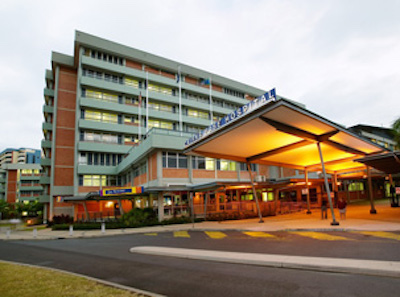
This week kicked off with a curious story first revealed over the weekend by the Cairns Post, which reported that the two far north Queensland hospital and health services had parted ways with the vendor chosen to roll out the electronic medical record part of the proposed Regional eHealth Project (ReHP).
This project has been on the drawing board since 2012, when Queensland Health got lucky in a bid for funding from the Commonwealth Health and Hospitals Fund (HHF), which was one of three infrastructure investment funds set up in the 2008-9 federal budget to the tune of $22.4 billion. The HHF got $5 billion of that to fund capital investment in health facilities, including for medical technology and equipment.

General practice teams will be able to see patients' ED visits, hospital admissions and discharges faster through a new GP dashboard function in the South Island's HealthOne shared primary care record system.
The new GP dashboard has just gone live in the Southern district and gives general practice teams up-to-date information about care their patients receive in hospitals throughout the South Island. ED visits, hospital admissions and outpatient appointments, including missed appointments, can now be seen along side patients’ other medical records.

NZ's national health services directory provider Healthpoint has launched a new application programming interface gateway to allow third-party apps and health organisations to access provider information and connect patients to services.
Healthpoint has used HL7's FHIR standard for the gateway, building it on HAPI FHIR for Java, an open-source implementation of the FHIR specification in Java.

Intelerad Medical Systems has expanded its nuage cloud managed services offering to allow users to host and manage their entire PACS infrastructure in the cloud.
Announced at the RANZCR annual scientific meeting in Auckland this week, the new offering also includes long-term storage services.
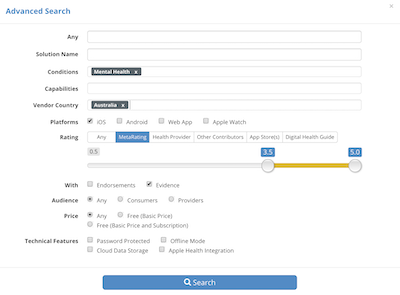
The makers of the Digital Health Guide are now allowing interested parties to write reviews for the hundreds of health apps the directory features, whether the reviewer is a healthcare provider or not.
The Digital Health Guide is a web-based, searchable directory of health apps that is being rolled out to healthcare providers by a number of primary health networks, including Primary Health Tasmania, Gippsland PHN, Sydney North PHN and North Coast PHN.
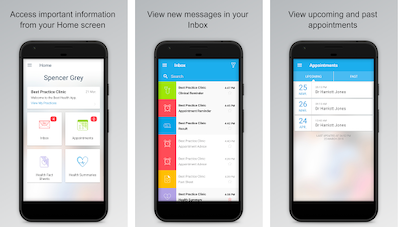
Market leading general practice management software vendor Best Practice Software is set to release its much-anticipated Best Health app in the next few weeks.
The app will allow patients to view their upcoming appointments, receive appointment reminders and check-in for their appointment using a Bluetooth-enabled beacon, and to receive clinical reminders, results, health summaries and individualised patient information leaflets.

Australian Digital Health Agency chief of staff Mark Kinsela has been appointment the new CEO of the Pharmaceutical Society of Australia (PSA), taking over from acting CEO Shane Jackson.
Mr Kinsela, who trained as an intensive care nurse and clinical nurse educator, has also been an adviser to federal health and aged care ministers.

Australia's largest provider of government-funded hearing services is planning to undergo a systems modernisation program, looking to replace its current practice management, enterprise resources planning and customer relationship management systems with an integrated platform in the next 18 months.
It has 164 hearing centres, 243 outreach sites and 457 visiting sites and almost 260,000. Anticipated users for each application number 1300, a mixture of administrative staff and audiologists.
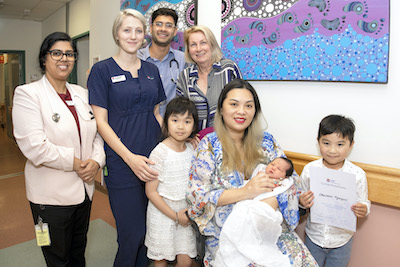
Sydney Local Health District (LHD) has rolled out Cerner's PowerChart Maternity module at Royal Prince Alfred and Canterbury hospitals, with a baby girl called Charlene Nguyen the first newborn to have a digital health record fully integrated into NSW Health's Cerner Millennium electronic medical record (eMR).
Charlene was born at Canterbury Hospital on Tuesday, October 1 following the roll-out of PowerChart Maternity, which provides full antenatal, inpatient and outpatient workflows integrated into the eMR.
It is mobile enabled so midwives visiting mothers and babies at home can view their records on their mobile devices.
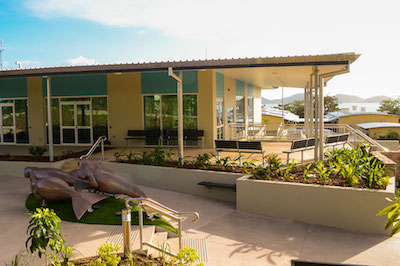
The two far north Queensland hospital and health services are in discussions with a new vendor for the next phase of the much delayed Regional eHealth Project, having parted ways with original vendor ISA Healthcare Solutions.
Perth-based ISA won a highly competitive tender in April 2017 to roll out its MMEx solution in 58 facilities in a joint initiative between the Cairns and Hinterland, and Torres and Cape Hospital and Health Services (CHHHS and TCHHS), with the hope of having the first sites live in mid-2018.

Volumes of secure messages being sent between users of Global Health's ReferralNet system and Telstra Health's Argus have been increasing by 12 per cent per month on average since two-way interoperability was achieved in February last year, the vendors report.
The numbers are particularly strong in Victoria, where both Argus and ReferralNet have a large market share, and involve users such as GPs, allied health professionals and several local hospitals with several thousand messages being exchanged each month.

Pulse+IT's weekly round-up of international health IT news for the week ending October 6: Ryuk loose in Canada, low quality health apps, medical research data sharing, US Medicare fraud uses telehealth, Cerner's cognitive computing venture, safety report on health IT risks, hackers use survey to phish, Alabama hospital pays ransom, GP at Hand in Manchester
Ransomware hits three Ontario hospitals
Canadian Healthcare Technology ~ Staff writer ~ 08/10/2019
The malware, known as “Ryuk,” attacks computer networks but remains invisible to average users for weeks or months. During that time, it collects information about the organization and its perceived ability to pay a ransom.
Only 15% of healthcare apps meet safety standards, research reveals
Digital Health News ~ Andrea Downey ~ 09/10/2019
Most notably, 75% of apps aimed at people with blood pressure concerns and 85% of femtech and pregnancy apps do not meet ORCHA’s quality threshold.

Wellington, NZ residents woke up last Saturday to the unpalatable news that local primary health organisation Tū Ora Compass Health had its IT system hacked four times over the last three years, and it is unlikely it will ever know if patient information has been accessed.
Two of the hacks appear to have been old-fashioned defacing of websites by a malicious hacktivist, but the other two may prove to be a bit more serious. While PHOs don't hold patients' medical data, they do keep records of people who are enrolled at general practices in the region, their National Health Index number, and their name, date of birth and address. That is all very valuable information for identity fraudsters.

Intelerad Medical Systems has launched a new suite of solutions packaged as the Intelerad Imaging Connectivity Suite that can offer hospitals an alternative to a costly replacement of legacy radiology and picture archiving systems.
The suite includes three primary components – the InteleConnect EV and InteleViewer solutions that are already used by a number of facilities in both Australia and New Zealand – and the nuage Patient Portal, which was launched in the region last October.
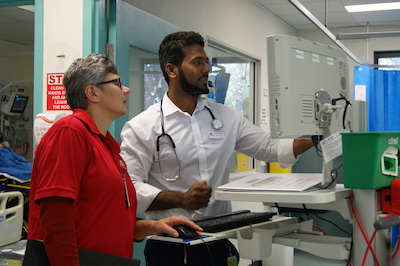
An extra 16 implementations of NSW Health's electronic medications management (eMeds) program went live last month, bringing the total number statewide to 165.
NSW Health has upped the pace in the ambitious program, with almost 100 health facilities going live in the last 12 months, including at Lithgow Hospital, the first site in the Nepean Blue Mountains Local Health District. A further 37 are due to go live by mid 2020.
Many are rural and remote facilities that are part of the rural eMeds program involving the six rural local health districts that have got together to roll out the Cerner system across 115 sites by the end of the year.

The South Australian government is claiming positive early results for its trial of priority care centres, which are aimed diverting low-acuity patients from emergency departments to primary care.
Two centres opened in Hackham and Hindmarsh in August followed by two more in Elizabeth and Para Hills, where SA Health figures show there is demand for services for less urgent conditions but patients are often transferred by ambulance to ED.

A virtual multidisciplinary foot ulcer clinic has been established in the Kimberley region of northern Western Australia, using specialist wound monitoring technology from Christchurch company ARANZ Medical to help monitor diabetic foot wounds and reduce the need for patients to travel vast distances to see a specialist.
An inter-agency initiative between primary care provider Boab Health Services, Kimberley Aboriginal Medical Services (KAMS) and Royal Perth Hospital, the clinic aims to ensure clients can be treated for longer in their own community using a multidisciplinary team care approach to help prevent lower limb amputations.

A rural doctors' group has raised reservations about some of the eligibility rules for the new MBS telehealth items for rural and remote patients, including a requirement that patients have seen their doctor face-to-face at least three times in one year and that only video consultations will be covered.
The Department of Health plans to add 12 new items to the MBS on November 1, four for GP services and eight for services provided by non-specialist medical practitioners. The items apply to patients living in Modified Monash Model (MMM) 6 or 7 areas, which include the most remote parts of the country.
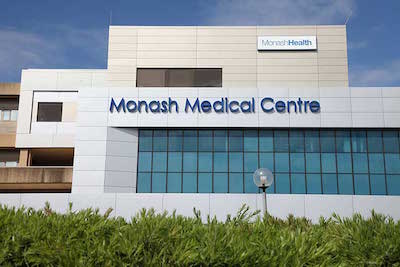
Monash Health has gone to market for a GP referral management solution that it wants to pilot early next year to handle its 4100 weekly referrals.
It is looking for a system that can use Monash Health's referral guidelines to assist the GP in completing clinically appropriate referrals, directed to the appropriate specialist unit.

St Vincent’s Private Hospitals are in the process of rolling out the latest version of EpiSoft's eAdmissions application, which has gone live in five of the group's hospitals over the last month.
Version three of eAdmissions has a suite of new functions including informed financial consent (IFC) workflow, a payment gateway, event-triggered patient communication tools, self-serve appointment booking and management, post-discharge feedback as well as being architected to support multilingual portals.

Staff access to Barwon Health's IT systems is progressively being restored following last week's cyberattack, with a number of clinical applications restored over the weekend.
Barwon Health, which runs University Hospital Geelong, was one of a number of health services in the South West Alliance of Rural Health (SWARH) and Gippsland Health Alliance to be affected by the incident, leading to several hospitals reverting to paper.

ASX-listed medications adherence solution developer MedAdvisor has raised $17 million to fund its further expansion into new markets, with Texan firm HMS Holdings investing $11m and becoming the Australian company's largest shareholder.
Funds raised will be used to accelerate international expansion through MedAdvisor’s partnering strategies in the US, southeast Asia and the UK, as well as domestic growth and technology development in advance of the legislative change to electronic prescribing.

An investigation into a hack of Wellington-region primary health organisation (PHO) Tū Ora Compass Health in August has revealed it has been attacked by four different malicious actors dating back to 2016.
The finding has led the Ministry of Health to order the other PHOs and the district health boards to check their systems for vulnerabilities, with three DHBs identifying a vulnerability in their websites and subsequently taking them offline.

Pulse+IT's weekly round-up of international health IT news for the week ending October 6: Deadline looms for fax axe, poor data for AI diagnoses, US VA rejects Cerner's dental partner, London ambos access SCR, digital overhaul for NHS Wales, Meditech in public cloud, slow interop in England, clinic fined for Yelp response, FDA guidance on medical device security, NIST guidance on PACS security, digital bedside sitters
Trusts set to miss Axe the Fax deadline due to ‘concerning lack of progress’
Digital Health News ~ Owen Hughes ~ 30/09/2019
The report reveals that the trusts with the most fax machines have collectively axed just 42% over the past twelve months, with less than six months to go until the ‘axe the fax’ deadline.
‘Less than one percent’ of diagnostic AI studies based on high-quality data
Digital Health News ~ Owen Hughes ~ 01/10/2019
Less than one percent of available studies on the effectiveness of artificial intelligence (AI) in detecting diseases is supported by high-quality data, according to new research.

The big news this week was the cyber attack on hospitals in Gippsland and south-west Victoria, which knocked out clinical and administrative systems in the region including some large facilities such as University Hospital Geelong and Latrobe Regional Hospital in Traralgon.
We received word that the attack involves Ryuk, a particularly nasty piece of ransomware that has also affected hospitals in the US and Canada, including three this week in Alabama that had to turn away patients. It has also been causing havoc for financial organisations and some major US newspaper groups since it first appeared last year.
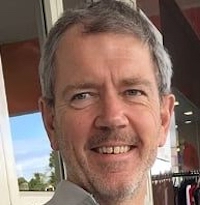
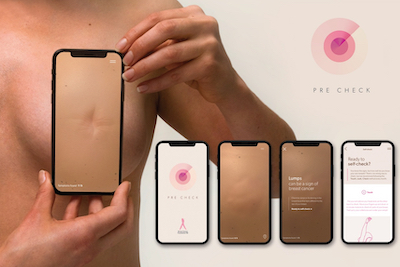
Breast Cancer Foundation NZ has released a self-checking app that uses haptic feedback technology to provide visual, tactile and audio cues when searching for signs of breast cancer.
Pre Check also includes a how-to guide to teach women what to look for when self-checking, and includes options to set reminders for regular self-checks that will push a notification to the user's phone.

AI and machine learning, practical applications of data analytics, genomics, and data interoperability are all on the agenda at the Health Data Analytics conference being held in Sydney from October 16 to 17.
Organised by the Health Informatics Society of Australia (HISA), keynote speakers include Stanford University's Prashant Natarajan, who will discuss global perspectives for AI and data analytics in healthcare.

The cyber attack that has shut down IT services at several Victorian hospitals is understood to involve ransomware called Ryuk that has been targeting large enterprises internationally, including healthcare systems in the US and Canada.
The attackers attempt to enter organisational networks through phishing emails with the intention of encrypting data. Ryuk has been active since August last year.
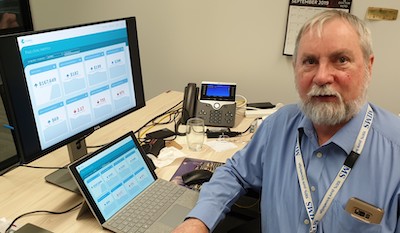
Best Practice Software has named Brisbane start-up Cubiko as one of the first approved integrators in its new Bp Partner Network.
Cubiko was officially launched at the AAPM Conference in Brisbane today and has been trialled in general practices for the last 12 months. It was developed by data analytics and dashboarding business Aginic in association with Brisbane general practice Inala Primary Care.

Telehealth provider Lysn has partnered with GP chain MyHealth Medical Clinics to give patients access to Lysn's bank of psychologists, both by telehealth and in person at 11 MyHealth locations.
Lysn was started up in 2017 by medical practitioner Jonathan King and has developed a WebRTC platform with appointment booking and directory functionality that allows patients to browse psychologists, have a phone or video consultation and pay through the one site.

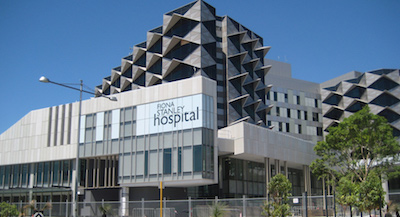
The West Australian government has released an ambitious 10-year digital health strategy for the state, highlighting a statewide electronic medical record as a key priority, along with electronic medications management and potentially a shared care platform to link primary and acute care in real time.
WA Health issued a request for information from EMR vendors on the feasibility of a statewide system in August following a recommendation by the Sustainable Health Review (SHR) final report, which has heavily influenced the digital health strategy.
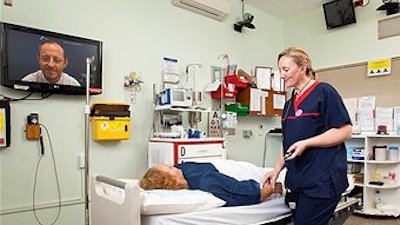
The WA government is funding the expansion of the WA Country Health Service Command Centre model of telehealth to provide extra services from next year, including an acute specialist telehealth service, acute patient transport coordination and an advanced patient monitoring system to detect and respond to deteriorating patients remotely.
WACHS has run an Emergency Telehealth Service (ETS) from its base in Perth since 2012, offering 24/7 access to emergency doctors by video conference to 80 country hospitals, nursing posts and Silver Chain facilities.

IT systems at a number of hospitals and health services in Gippsland and south-west Victoria, including some patient record and booking systems, have been affected by a ransomware attack, the Victorian government says.
The incident, which was uncovered yesterday, has blocked access to several systems including financial management. The hospitals affected are part of the Gippsland Health Alliance and of the South West Alliance of Rural Health, including University Hospital Geelong.

The Australian Digital Health Agency has released a request for information (RFI) on ideas about the future of the national digital health infrastructure and how it should operate.
Part of the National Infrastructure Modernisation Program (NIMP), the aim is to take advantage of new and emerging technologies that could be applied to digital systems, including the My Health Record.

ASX-listed pharmacy dispense system vendor Corum Group has announced a technology co-development agreement with BAMM Group, which owns the Pharmacy4Less discount chemist chain, to work on a software as a service platform as part of its new Corum Clear suite of pharmacy software solutions.
Corum also announced it has raised $3.66 million from new investors, including healthcare commercialisation and consulting firm Alchemy Healthcare.
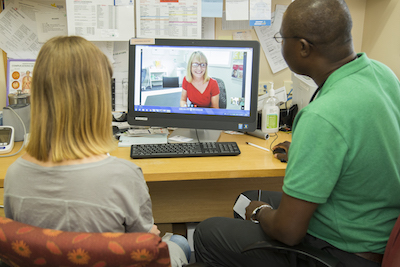
The 19th annual Successes and Failures in Telehealth (SFT-19) conference is being held later this month on the Gold Coast, organised by the University of Queensland's Centre for Online Health in conjunction with the Australasian Telehealth Society.
There will be a series of workshops on the first day covering the fundamentals of telehealth, conducting economic evaluations for telehealth services and an introduction to artificial intelligence, presented by director of critical care research at Gold Coast University Hospital Brent Richards.

Pulse+IT's weekly round-up of international health IT news for the week ending September 29: Digitising old GP records, NHS funds GP telehealth consults, sensitive skin cancer app, regulating wellness apps, US unique patient identifier, the pill online, Fitbit for heart monitoring, Amazon's plans for Alexa, AI for clinical documentation improvement, information blocking roadblock
PRSB seeks public opinion on digitising old GP records
Digital Health News ~ Owen Hughes ~ 24/09/2019
The Professional Record Standards Body (PRSB) has launched a survey to find out the opinions of patients, carers, and GP practices about the benefits and potential challenges of digitising old GP records.
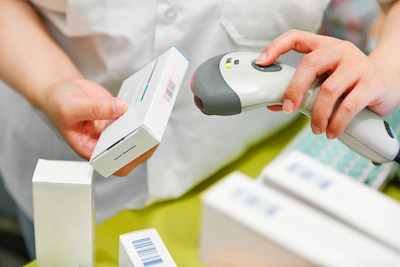
The big news this week was the moves underway to put electronic prescriptions on the same legal footing as paper scripts, with the Department of Health announcing its plans for the required regulatory changes and the Australian Digital Health Agency releasing some draft documents laying out the proposed solution architecture.
The department is insistent that ePrescriptions will be available this year, with a so-called “success statement” included in its documentation stating that “by October 2019 the electronic prescribing project will allow an electronic prescription to progress from prescribe through to dispense and claim in an electronic format”.

The federal government is shortly to introduce legislation to allow electronic prescriptions to be legal forms alongside paper scripts, promising that electronic prescribing will be available this year.
The government allocated $15.3 million in the 2018-19 budget for the initiative, which requires changes to prescribing and dispensing software and to the PBS claim for payment system.
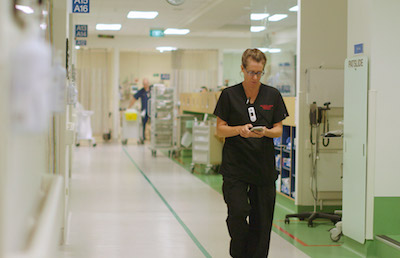
New Zealand's Auditor-General has lashed the procurement process undertaken by the Waikato District Health Board for its failed HealthTap project, which its backers hoped would make Waikato an “innovation hub" for Australia and New Zealand in delivering end-to-end virtual care.
Waikato DHB spent $26 million on HealthTap as part of its Virtual DHB/SmartHealth project despite it being a relatively untested app outside of the US.
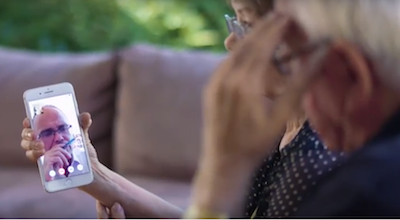
Western Victoria Primary Health Network (PHN) is funding a trial of the My Emergency Dr telehealth service at Great Ocean Road Health's Lorne and Apollo Bay urgent care centres (UCCs).
The video-call service will be used by UCC staff in the after hours period via the My Emergency Dr (MED) app on a smartphone or tablet, which provides remote access to a team of emergency specialists who can assess, diagnose and arrange treatment.

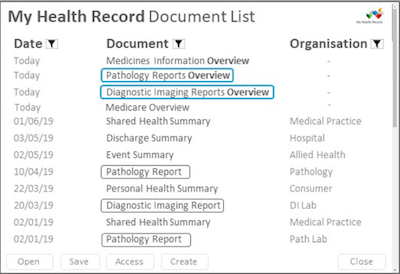
Changes will be made to the My Health Record system from this weekend to provide an easier way for healthcare providers to sort through pathology and diagnostic imaging reports uploaded to their patients' records.
A new pathology reports overview and a diagnostic imaging reports overview will go live on Saturday which will allow users to see reports grouped by test or examination name, or by date.

A new Australian Research Council (ARC) centre of excellence has been established to investigate the effects of digital technology on children and conduct a longitudinal study of the digital lives of Australian children from birth to eight years of age.
The ARC Centre of Excellence for the Digital Child will be based at the Queensland University of Technology and will involve five Australian universities and 33 academic and industry partner organisations from Australia, Europe, Asia and America.
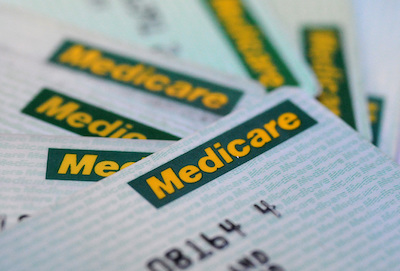
The federal government is proposing new regulations to allow the Department of Health to match and share data to help identify Medicare fraud and incorrect or inappropriate claiming.
The department has released a consultation paper outlining the proposed amendments, which would allow it to match MBS data with, for example, immigration data to check whether a patient or the healthcare provider was overseas when a claim has been made.

Technology solutions and services giant Leidos Australia has chosen local vendors MediRecords and Coviu as partners for its bid for the Department of Defence's Joint Project 2060 (JP2060) Phase 4 eHealth system replacement.
The new system will include a medical record, case management, ePrescribing, eReferrals, practice management and patient administration as well as clinical decision support, closed loop diagnostic tests, an online patient portal and links to the My Health Record and the Department of Veterans Affairs.

Pulse+IT's weekly round-up of international health IT news for the week ending September 22: PACS on the open internet, DeepMind staff join Google Health, digital health IPOs unsustainable, AI for dermatology, Amazon's pharmacy venture, machine learning for heart failure, $200m for digital pharmacy, information blocking, positive results for VA telehealth, cybercrims stealing admin credentials
Millions of Americans’ medical images and data are available on the internet
ProPublica ~ Jack Gillum, Jeff Kao and Jeff Larson ~ 17/09/2019
Medical images and health data belonging to millions of Americans, including X-rays, MRIs and CT scans, are sitting unprotected on the internet and available to anyone with basic computer expertise.
Is digital health in an investment bubble?
MedCity News ~ Arundhati Parmar ~ 18/09/2019
Three VCs from New York, Michigan and California all agreed that valuations in digital health are unsustainable.

Seven years after it was first encouraged to consider changing its laws to permit real-time monitoring of prescriptions, Queensland has finally come to the party and amended its poisons and medicines act and its therapeutic goods regulations to pave the way for a RTPM system to be introduced next year.
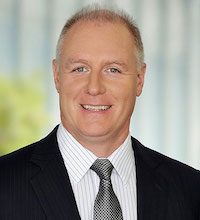
Clinical Excellence Queensland deputy director-general John Wakefield has been appointed as the new director-general of Queensland Health, taking over from Michael Walsh, who has retired.
Dr Wakefield is a medical doctor and experienced health administrator and established the Queensland Health Patient Safety Centre in 2004.

The Mackay Hospital and Health Service in Queensland has extended its emergency telehealth service to 10 aged care facilities in the towns of Mackay and Sarina.
The service runs from 4pm to 10pm seven days a week and follows a similar service that began in Bowen earlier in the year.
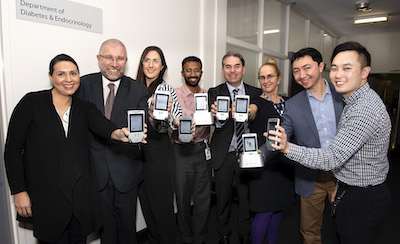
Royal Melbourne Hospital says it is the first hospital in Australia to implement networked glucose meters for the electronic monitoring of patient glucose levels during their hospital stay.
RMH trialled the use of the StatStrip meters from AMSL in 2016 and now has a network of 155 meters in total, which provide real-time information on patients' glucose measures to specialist inpatient diabetes teams.

An online mental health service based on the principles of stepped care has helped identify students experiencing symptoms of depression and anxiety in a pilot study in NSW.
Developed by the Black Dog Institute, the Smooth Sailing service uses a website to screen, assess, allocate and deliver care for depression and anxiety, with symptoms monitored fortnightly by an email or SMS check-in.

Researchers from the University of Auckland and Middlemore Hospital have developed a benefit-harm calculator for use by clinicians and patients to decide on whether to take daily aspirin as a preventative against heart disease and stroke.
The web-based calculator brings together a bleed risk estimate with an estimate of how many CVD events aspirin would likely prevent, giving a net benefit or harm for individuals.

The Queensland Parliament has passed new laws today that update regulations covering medicines and therapeutic goods to allow for the introduction of a real-time prescription monitoring system.
Like the other states and territories, Queensland has had access to a licence for a software solution called ERRCD since 2012, but has not made the necessary changes to poisons regulations until now.

ASX-listed software as a service vendor TechnologyOne has won a four-year, $3.2 million contract with the ACT Health Directorate to provide a replacement for its legacy inventory management system.
TechnologyOne will implement an enterprise SaaS solution incorporating supply chain, prosthesis management, business intelligence and analytics to replace the old on-premise Purchasing and Inventory Control System (PICS).
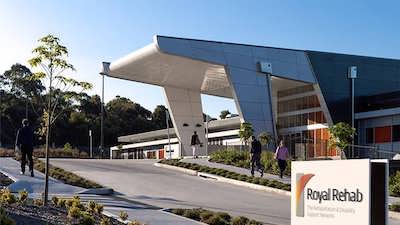
Sydney's Royal Rehab Private Hospital plans to go live next month with a new MasterCare patient administration system (PAS) from Global Health.
The MasterCare PAS will support workflow from admission through to discharge of patients, managing all aspects of patient information flow from beds and medical records to billing, private health insurance claims and receipting.

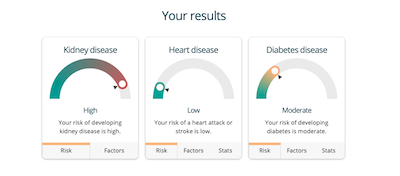
Healthdirect Australia and The George Institute for Global Health have developed a free online risk checker to help consumers determine their level of risk for heart disease, kidney disease and diabetes.
The healthdirect Risk Checker provides a personalised summary and report that guides users through lifestyle changes that could reduce their risk of developing the three diseases. Users are also prompted to visit their GP if needed.
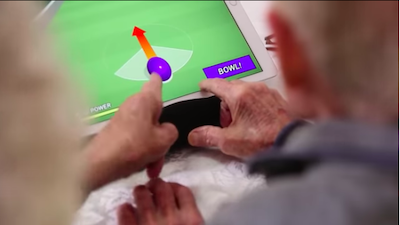
Dementia Australia's A Better Visit app is now available for Android tablet devices, having been downloaded 3000 times from the App Store since its launch for iPads in November last year.
The free app features a range of two-player games designed to enhance communication between people in residential care living with dementia and their visitors, who often struggle to come up with new things to talk about with a family member who no longer recognises them.

Pulse+IT's weekly round-up of international health IT news for the week ending September 15: Big tech not interested in EMRs, Apple ups research reach, health data privacy, maternal mortality tools, NLP and documentation burden, drones deliver in remote Canada, US DoD extends Cerner roll-out, Boots offering GP video consults in store, Android on FHIR
Google and others ‘not interested in electronic patient record market’
Digital Health News ~ Owen Hughes ~ 12/09/2019
“Quite frankly I think it’s too late because across world, everyone is invested heavily in their EMR systems – both in the cost of equipment and training of people who use them.”
Apple announces three new Apple Watch health studies with big-name partners
MobiHealthNews ~ Dave Muoio ~ 10/09/2019
Amidst the unveiling of its newest consumer smartphones, tablets and smartwatches, the tech company said it will begin enrolling consumers into its hearing, cardiovascular and women's health studies later this year through an upcoming app.

In late news this week we hear that the Australian Digital Health Agency hopes to approach the market in the next few weeks through a request for information (RFI) process about the potential to “re-platform” the national digital health infrastructure, including the My Health Record.
This move has been mooted for a few years now and was confirmed by ADHA's CIO Ronan O'Connor in a chat with Pulse+IT last year. The MyHR has been built on a clinical document architecture that while novel in 2011 – and ADHA says is still fit for purpose now – is quickly being overtaken by newer, shinier technologies.

Starship Children's Hospital has adapted Auckland District Health Board's Script app for paediatric patients, promising to make prescribing antibiotics for children more efficient and safer for clinicians.
The Script for Paediatrics app brings over 250 separate web-based guidelines together, feeding into multiple algorithms which map a path for users to identify the correct antibiotic and treatment plan and helping to ensure the most targeted antibiotic is prescribed.

A tender has been issued for the build and maintenance of a National Data Storage and Analytics Solution (NDSAS) that will hold up to 70 terabytes of data from the primary health sector for analysis, including data gathered for the recently launched general practice quality improvement program (PIP QI).
The federal government has approved $10 million for the new system, with the procurement and trial being handled on behalf of the 31 primary health networks (PHNs) and the federal Department of Health by the Western Australian Primary Health Alliance (WAPHA), which operates the three WA PHNs.
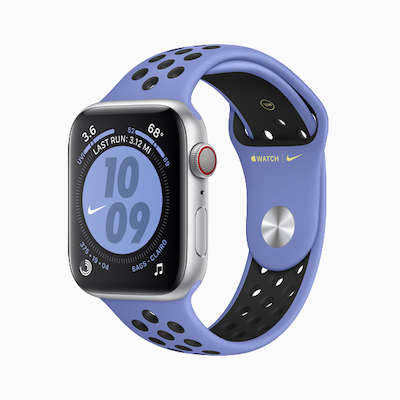
Apple has added new health and fitness features to its latest edition of its watchOS 6 operating system for Apple Watch, including a menstrual cycle tracker for fertility, an app to help users assess ambient noise, and an activity trends app to help track progress.
The Apple Watch Series 5 also has new functionality to automatically place an emergency call even while overseas if Apple Watch senses the user has taken a hard fall and remains motionless for about a minute.

Pharmacy dispensing system Minfos has integrated with MIMS' drug to drug and drug-allergy interaction alert modules into the Minfos dispense workflow.
When a new drug is dispensed, Minfos will automatically access the MIMS clinical decision support modules and will issue a drug interaction or allergy warning based on the patient’s medication history stored in Minfos.
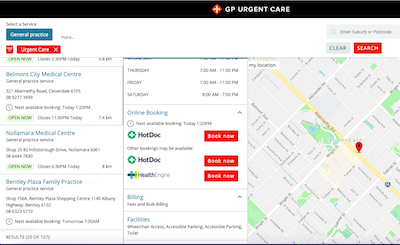
Western Australia has gone live today with its GP urgent care clinic network project, which will see general practices in Perth and the south west offer appointments from 8am to 8pm, seven days a week, to take the pressure off emergency departments.
The 18-month pilot, which involves 125 practices, is being backed by an advertising campaign with the tagline “Not all urgencies are emergencies” running on television, outdoor, radio and digital channels encouraging people with urgent medical conditions that are not an emergency to attend an urgent care clinic instead of an ED.

Mt Gambier Hospital, South Australia's largest regional hospital, plans to go live next month with the iPro Anaesthesia Information Management Solution (AIMS) from Allscripts.
The AIMS platform went live at the Royal Adelaide Hospital in 2017, followed by the implementation of the post-anaesthesia care unit (PACU) module in mid-2018.

The Australian Digital Health Agency (ADHA) says it is now working with 42 software companies on implementing new FHIR-based interoperability standards for secure messaging, covering 56 separate software products.
ADHA released an industry offer in March to clinical software vendors involving up to $30,000 to assist them in implementing the standards, which were co-developed and tested in proof-of-concept trials led by Telstra Health and HealthLink in 2018.

Pulse+IT's weekly round-up of international health IT news for the week ending September 8: Helsinki's digital moves, patients patient on data breaches, EMRs generate evidence, $900m for drug overdose data, CHIME in the UK, virtual Planned Parenthood, Sequoia to set data exchange rules, virtual cardiac rehab works, cloud fax, Mayo in the UK
Helsinki's digital services creates tools for seniors to stay in their homes
MobiHealthNews ~ Laura Lovett ~ 02/09/2019
Finnish language proves a barrier to voice control and virtual assistants but older Finnish patients are now starting to use everything from video chats with nurses, to smart medication dispensers and GPS trackers.
Prompt notification eases pain of data breaches, consumers say
Health Data Management ~ Laura Alix ~ 05/09/2019
Consumers may be willing to forgive an organization that’s suffered a data breach if they get timely notifications about the incursion.

The difficulties that new entrants into health IT markets face were writ large this week when Pegasus Health, the main primary healthcare organisation covering general practices in Christchurch and surrounds, finally had to throw in the towel on its venture to co-develop and roll out a new practice management system for its 90 or so members.
A few other PHOs have followed in Pegasus' path of exploring the market for a new preferred PMS that suits contemporary and future general practice. The other three big PHOs in NZ's big cities – ProCare in Auckland, Pinnacle in Hamilton and Compass in Wellington – have all gone through a preferred PMS process and all have recommended migrating from incumbent Medtech to another vendor.
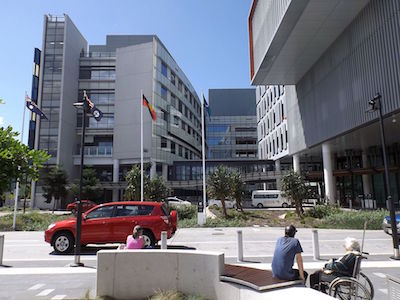

Gold Coast Hospital and Health Service CIO and Robina Hospital executive director Damian Green has been named as the new CEO of eHealth Queensland, replacing Richard Ashby, who resigned in January.
The position also means Mr Green is CIO for Queensland Health. He takes over from Bruce Linaker, who has been acting in the role for the last eight months.
Copyright © 2025 Pulse IT Communications Pty Ltd. No content published on this website can be reproduced by any person for any reason without the prior written permission of the publisher. If your organisation is featured in a Pulse+IT article you can purchase the permission to reproduce the article here.
Website Design by Get Leads AU.